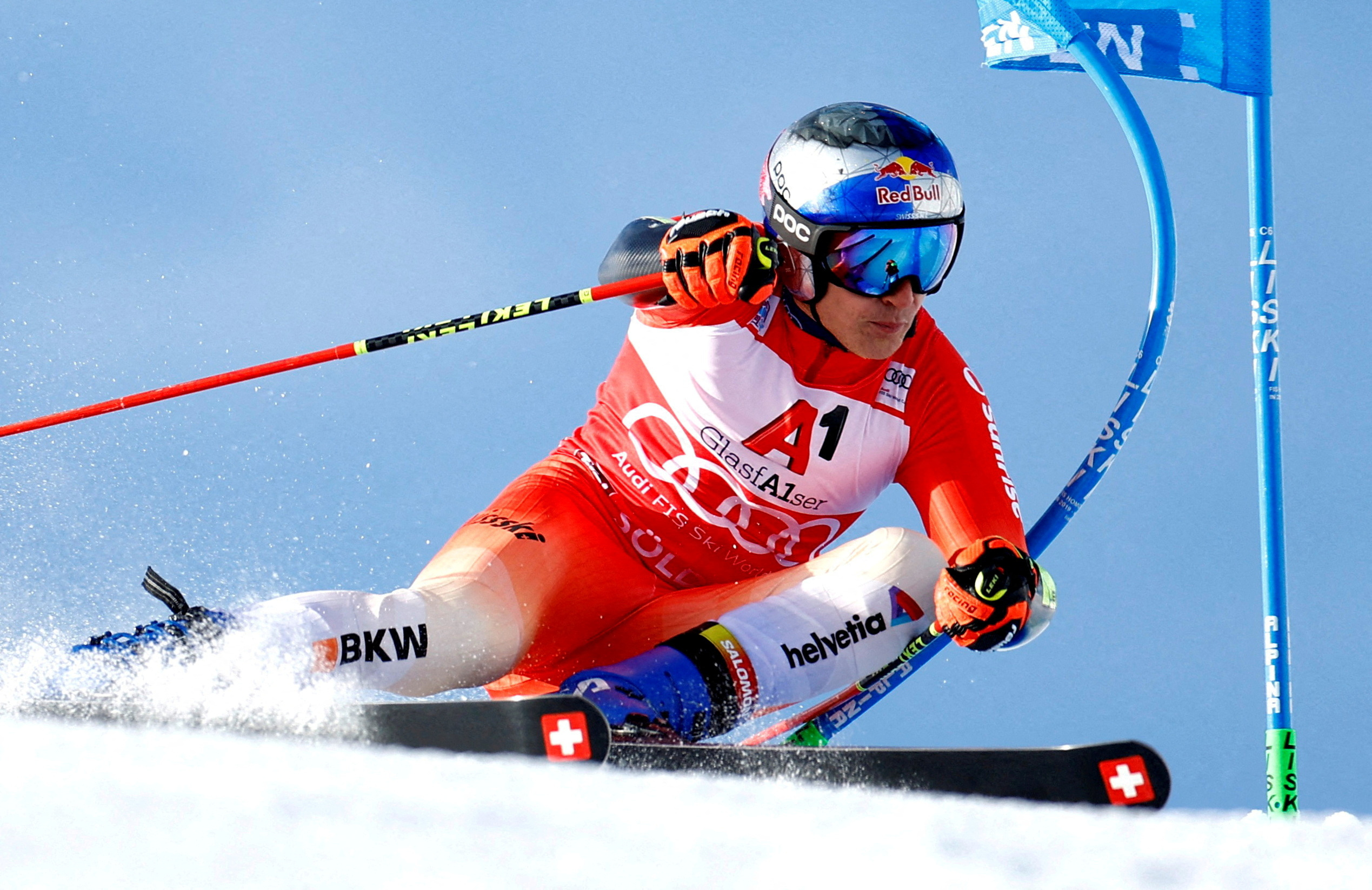Swiss Sensational Odermatt Claims World Cup Giant Slalom Glory, Denying Team Advantage

Swiss Sensational Odermatt Claims World Cup Giant Slalom Glory, Denying Team Advantage
A Tale of Individual Brilliance and Team Resilience
In the heart of Sölden, Austria, Marco Odermatt, the Swiss sensation, etched his name into ski racing history by claiming victory in the season-opening World Cup Giant Slalom race. His triumph not only marked a remarkable individual triumph but also denied the formidable Austrian team a home soil advantage.
Odermatt's Dominance: A Display of Technical Mastery
Odermatt's victory was a testament to his unparalleled skiing prowess. The 25-year-old Swiss skier dominated both runs, leaving his rivals trailing in his wake. With an aggressive and technical approach, he navigated the challenging course with precision and speed, demonstrating why he is widely regarded as the world's best giant slalom skier.
Austrian Team's Resilience: A Show of Strength in Unity
Despite Odermatt's dominance, the Austrian team put up a valiant fight, proving their enduring strength and resilience. Manuel Feller and Marco Schwarz finished second and fourth, respectively, giving Austria a strong showing on home soil. Their performances highlighted the team's depth and ability to challenge even the most dominant skiers.
Data-Driven Insights: Analyzing the Race
Official race results:
| Rank | Name | Country | Time |
|---|---|---|---|
| 1 | Marco Odermatt | Switzerland | 1:57.21 |
| 2 | Manuel Feller | Austria | +0.27 |
| 3 | Mathieu Faivre | France | +0.68 |
| 4 | Marco Schwarz | Austria | +0.95 |
| 5 | Alexis Pinturault | France | +1.04 |
The data reveals Odermatt's significant margin of victory, indicating his commanding performance on the day. Feller's second-place finish was a testament to the Austrian team's strength, while Faivre's podium position demonstrated the competitiveness of the race.
Perspectives and Analysis
Expert Opinion:
"Odermatt's victory is a continuation of his impressive form. His technical brilliance and tactical execution are unmatched. However, the Austrian team showed great resilience, proving that team unity can still challenge individual greatness." – Dr. Hans-Peter Innerhofer, former World Cup Giant Slalom champion
Athlete's Perspective:
"It was a tough race, but I was confident in my abilities. I managed to execute my plan and make the most of my strengths. The Austrian team gave it their all, but today, I was just too strong." – Marco Odermatt, World Cup Giant Slalom winner
Team Perspective:
"We are disappointed not to have won on home soil, but we are proud of our performance. Manuel and Marco skied well, and we showed that we are still a force to be reckoned with." – Michael Pircher, Austrian Ski Team Head Coach
Broader Implications: The Future of Ski Racing
Odermatt's victory and the Austrian team's resilience raise important questions about the future of ski racing.
- Individualism vs. Team Advantage: Will the sport continue to be dominated by individual brilliance or will team unity and strategy play a more significant role?
- Importance of Technical Skills: Odermatt's mastery of technical skiing suggests that technical proficiency remains paramount in the sport.
- Role of Home Advantage: The Austrian team's inability to capitalize on home soil raises questions about the significance of home advantage in the modern era.
Conclusion
Marco Odermatt's World Cup Giant Slalom victory in Sölden is a testament to his exceptional skiing abilities. However, it also exposes the complexities of the sport, where individual brilliance and team resilience often collide. The Austrian team's performance demonstrated the importance of unity and strategy, while Odermatt's dominance highlighted the value of technical mastery. As the ski racing season unfolds, it will be fascinating to see how these dynamics continue to shape the competitive landscape.